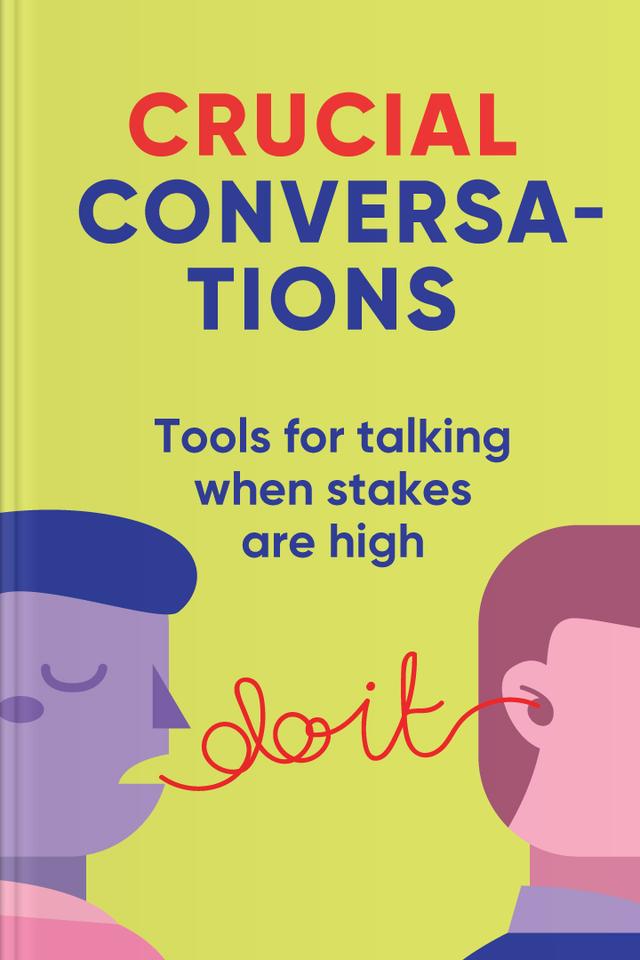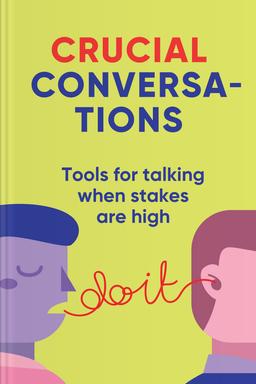You’ll learn
- The importance of crucial conversations
- What the Pool of Shared Meaning is
- About conversational warning signs
- How to use the S.T.A.T.E. framework
Protect the world’s peace. Donate to support Ukraine

first KEY POINT
Crucial conversations are not just ordinary discussions but ones that hold a lot of weight and can change the trajectory of your life. They usually occur when there is a difference of opinion or a lot at stake; for instance, when you seek a promotion, your boss disagrees with you, or your company is growing slower than it should, there is a lot of pressure to perform. The need for these types of conversations can also happen in your personal life when you are experiencing an emotional conflict with your spouse or loved ones.The reason why these discussions are deemed crucial is that they can have a profound impact on your daily life. However, many people avoid them for fear of worsening the situation. Instead of confronting the issue, they resort to strategies such as sending an email or voicemail, which only worsens the problem. The power to lead comes from discussing emotive, high-stakes, contentious issues openly and honestly in all relationships, workplaces, organizations, and communities.
Having these conversations requires courage, patience, and good communication skills. It is essential to have an open mind and be willing to listen to the other person's point of view. When you approach these conversations with empathy and understanding, you create an environment where both parties can express their concerns and work toward a common goal. Crucial discussions may be uncomfortable but are necessary for growth and development. You can improve your relationships, job performance, and overall happiness by learning how to handle them effectively. Join us on this journey through the rough seas of crucial conversations.
second KEY POINT
Most of us believe that in a crucial conversation, we must choose between two unacceptable options: being honest and risking alienating a friend, often known as The Fool's Choice.But there exists a minority that refuses to make this choice. With goals that diverge from the rest, this group is 100% honest and respectful to the other party during a crucial conversation. These people know how to dialogue.This open communication fosters mutual understanding and trust, leading to more effective problem-solving and decision-making. Engaging in dialogue also helps to reduce misunderstandings and promotes a sense of inclusivity and respect among participants. Skilled conversationalists use active listening and other techniques to encourage sharing diverse perspectives, leading to a more comprehensive understanding of complex issues. Ultimately, engaging in dialogue can lead to personal growth and a deeper appreciation for the experiences and viewpoints of others.Everyone has preconceived notions, biases, and assumptions concerning the discussion subject. Each of us has distinct meanings that guide and enlighten our daily lives. The participants' intentions in a vital dialogue are sometimes different. Opinions vary. Take two people, for example; they may have opposing viewpoints, as their histories are unique. However, together, they create a shared pool of meaning.

Continue reading with Headway app
Continue readingfirst KEY POINT
second KEY POINT
third KEY POINT
fourth KEY POINT
fifth KEY POINT
sixth KEY POINT
seventh KEY POINT